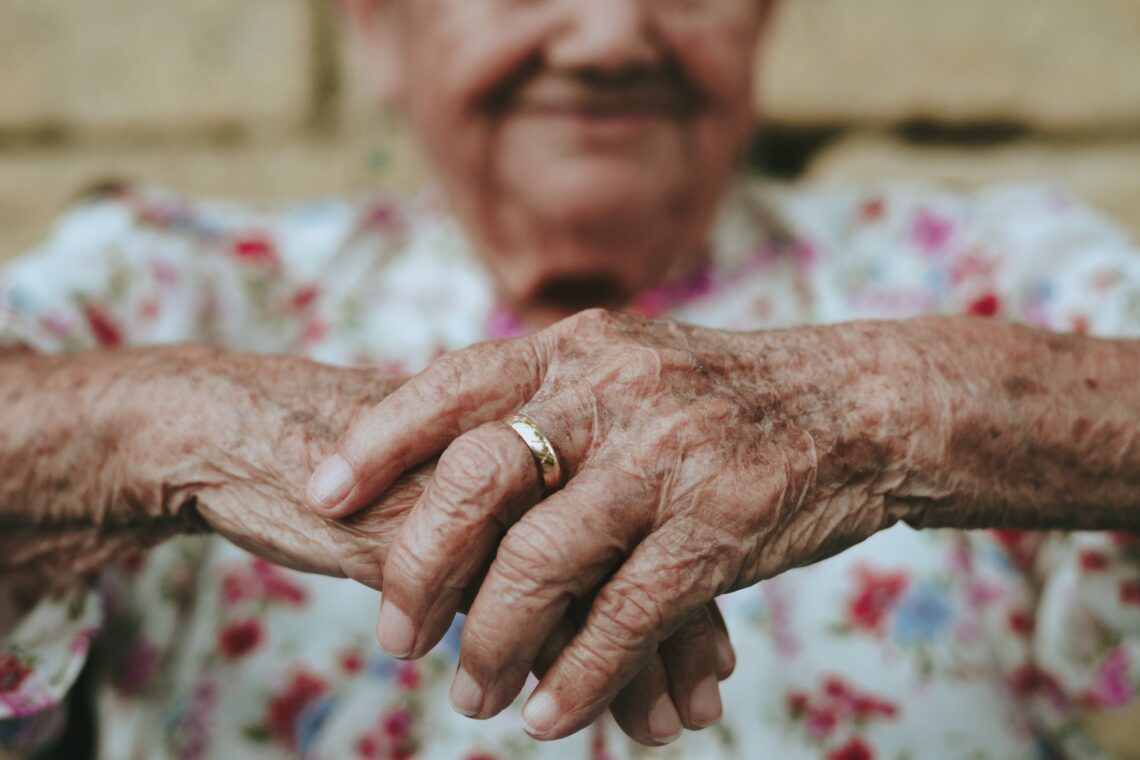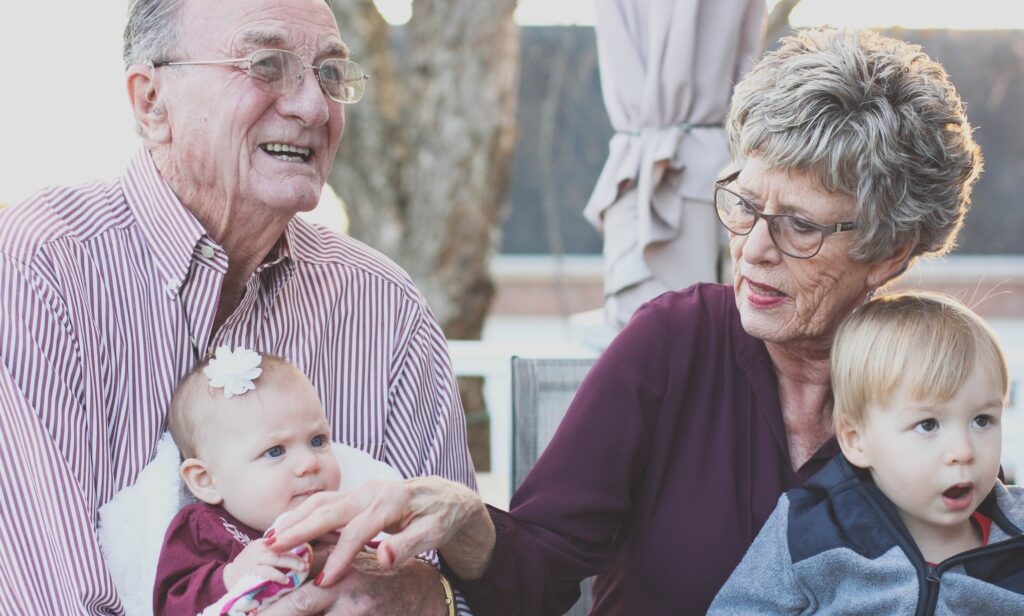
The elderly cure us from our obsession with haste
“The rhythms of old age are an indispensable resource for grasping the meaning of life”, says Pope Francis.
In the Bible account of the genealogy of the ancestors, one is immediately struck by their tremendous longevity: we are talking about centuries! When does old age begin here, we wonder? And what is the meaning behind the fact that these ancient fathers lived so long after fathering their children? Fathers and sons living together for centuries! This passage of time in terms of centuries, narrated in a ritual style, confers a strong, very strong symbolic meaning to the relationship between longevity and genealogy.
It is as though the transmission of human life, so new in the created universe, demanded a slow and prolonged initiation. Everything is new at the beginnings of the history of a creature who is spirit and life, conscience and freedom, sensibility and responsibility. New life – human life – immersed in the tension between its origin ‘in the image and likeness’ of God, and the fragility of its mortal condition, represents a novelty to be discovered. And it requires a long initiation period, in which mutual support among generations is indispensable in order to decipher experiences and confront the enigmas of life. During this long time, the spiritual quality of man is also slowly cultivated.
In a certain sense, every passing epoch in human history offers this feeling again: it is as if we have to begin again to calmly ask our questions on the meaning of life, when the scenario of the human condition appears crowded with new experiences and hitherto unasked questions. Certainly, the accumulation of cultural memory increases the familiarity needed to face new transitions. The times of transmission are reduced, but the times of assimilation always require patience.
The excess of haste, which by now obsesses every stage of our life, makes every experience more superficial and less ‘nourishing’.
Young people are unconscious victims of this split between the time on the clock that demands to be rushed, and the times of life that require proper ‘leavening’. A long life enables these long times and the damages of haste to be experienced.
Old age certainly imposes a slower pace: but it is not merely a time of inertia. Indeed, the measure of these rhythms opens up, for all, spaces of meaning of life, unheard of by the obsession with haste. Losing contact with the slower rhythms of old age closes up these spaces to everyone. It is from this perspective that I wished to establish the feast of grandparents on the last Sunday of July. The covenant between the two poles of the generations of life – children and the elderly – also helps the other two – young people and adults – to bond with each other so as to make everyone’s existence richer in humanity.

Dialogue between the generations is necessary. If there is no dialogue between young people and the elderly, then each generation remains isolated and cannot transmit the message. A young person who is not bonded to his or her roots, which are the grandparents, does not receive the strength, – like a tree gets its strength from the roots – and grows up badly, grows up sick, grows up without points of reference. This is why it is necessary to seek a dialogue between the generations, as a human need. And this dialogue is important especially between grandparents and grandchildren, who are the two extremes.
Let us imagine a city in which co-existence among the different ages forms an integral part of the overall plan of its habitat. Let us think about building affectionate relationships between old age and youth that radiate onto the overall style of relationships. The overlapping of the generations would become a source of energy for a truly visible and liveable humanism.
Modern cities tend to be hostile to the elderly (and, not by chance, also to children).
This society that has this throwaway spirit and rejects many unwanted children rejects the elderly: it casts them aside – they are of no use – and puts them in rest homes, hospitalized. Excess haste puts us in a blender that throws us away like confetti. One completely loses sight of the overall picture. Each person holds onto his or her own piece, floating on the currents of the city-market, for which a slower pace means losses and haste is money. The excess of haste pulverizes life: it does not make it more intense. And wisdom requires ‘wasting time’.
When you return home and see your son, your daughter, and you ‘waste time’, this conversation is fundamental for society. When you return home and there is a grandfather or grandmother who is perhaps no longer lucid or, I don’t know, has lost some of their ability to speak, and you stay with him or with her, you are ‘wasting time’, but this ‘waste of time’ strengthens the human family. It is necessary to spend time, time that is not lucrative, with children and with the elderly, because they give us another ability to see life.

The pandemic, in which we are still forced to live, has imposed – very painfully, unfortunately – a halt to the obtuse cult of haste. And in this period, grandparents have acted as a barrier to the emotional ‘dehydration’ of the youngest. The visible covenant of the generations which harmonizes paces and rhythms, restores to us the hope of not living life in vain. And it restores to each of us the love for our vulnerable lives, blocking the way to the obsession with haste, which simply consumes it.
The key word here is wasting time. I ask each one of you: do you know how to waste time, or are you always in a hurry? “No, I’m in a rush, I can’t…”.
Do you know how to waste time with grandparents, with the elderly? Do you know how to spend time playing with your children, with children?
This is the touchstone. Think about it. And this restores to each person our love for our vulnerable life, blocking, as I said, the road to obsession with haste, which just consumes it.
The rhythms of old age are an indispensable resource for grasping the meaning of life marked by time. The elderly have their rhythms, but they are rhythms that help us. Thanks to this mediation, the destination of life in the encounter with God becomes more credible: a design that is hidden in the creation of the human being ‘in his image and likeness’ and is sealed in the Son of God becoming man.
Today there is greater longevity of human life. This gives us the opportunity to make the covenant between all stages of life grow. Much longevity, but we must make more of the covenant. And this also helps us to make the covenant with the meaning of life in its entirety grow.
The meaning of life is not found only in adulthood, say, from 25 to 60 years. The meaning of life is all of it, from birth to death, and you should be able to interact with everyone, and also to have emotional relationships with everyone, so that your maturity will be richer and stronger. And it also offers us this meaning of life, which is a whole.
May the Spirit grant us the intelligence and strength for this reform: a reform is needed. The arrogance of the time on the clock must be converted into the beauty of the rhythms of life. This is the reform we must make in our hearts, in the family and in society. The covenant of the generations is indispensable. A society in which the elderly do not speak with the young, the young do not speak with the elderly, adults do not speak with neither the elderly nor young people, is a sterile society, without a future, a society that does not look to the horizon but rather looks at itself. And it becomes lonely. May God help us find the right music for this harmonious relationship among the various ages: the little ones, the elderly, adults, everyone together: a beautiful symphony of dialogue.
This is a slightly edited and abridged version of a catechesis (i.e. teaching) by Pope Francis on the value of the elderly in society. It is the second of a series, preached on 2nd March 2022. For the first catechesis, preached on 23rd February, click here. Others are following. For all the catecheses in the series thus far, go here.
Like what you’ve read? Consider supporting the work of Adamah by making a donation and help us keep exploring life’s big (and not so big) issues!

